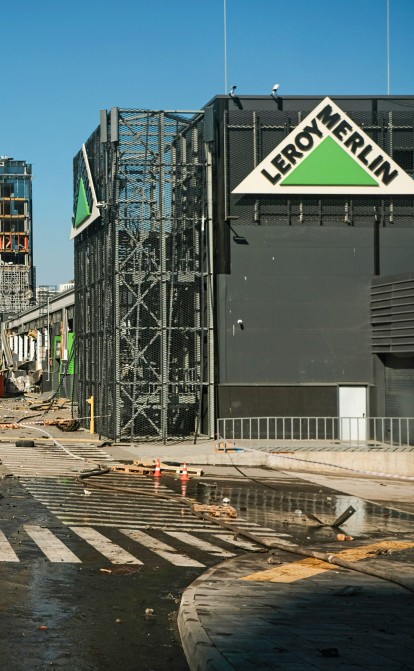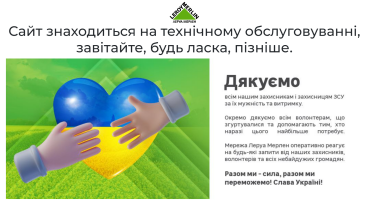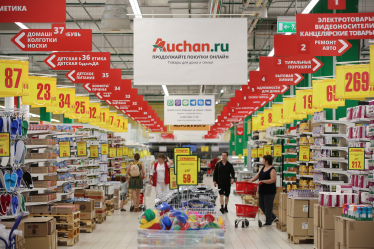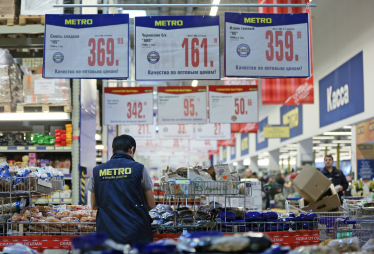As a result of the full-scale invasion of Ukraine, 450 foreign companies decided to suspend operations in Russian or leave the market entirely. But Leroy Merlin, Nestle, Auchan, METRO, JTI and other brands find excuses not to do so. How Ukrainian branches oppose the cynicism of the parent companies.
Купуйте річну передплату на шість журналів Forbes Ukraine за ціною чотирьох номерів. Якщо ви цінуєте якість, глибину та силу реального досвіду, ця передплата саме для вас.
«They tried to get to our social media accounts for a whole week», an anonymous employee at the French home improvement and gardening retailer Leroy Merlin tells Forbes. The head office got control of the companyʼs accounts on the 23rd of March, and deactivated them. Blockade of the Ukrainian office, as the employee said, started a few days before the war had begun. Then, the French retailer’s online store stopped working in Ukraine.
Employees who petitioned to stop the companyʼs operations in Russia were excluded from corporate emails and Workplace platforms that colleagues from different countries usually use to connect with each other . «Groupe ADEO neither wanted to hear, nor see us,» the Leroy Merlin employee says, «We were cut off and connected to a ‘Workplace platformʼ where we could only communicate with Ukrainian employeesʼ.

- Категорія
- Рейтинги
- Дата
The French Groupe Adeo belongs to the Association Familiale Mulliez (AFM), owned by the Mulliez family. In addition to Leroy Merlin, it also includes food retailer Auchan and sports store Decathlon.
The reason for the blockade? As a result of Russiaʼs full-scale invasion, 450 foreign companies decided to leave Russia or suspend operations, according to data published by the Yale School of Management. 169 companies have withdrawn from Russia, 191 suspended their activities, 30 have scaled back their business operations and a further 56 are holding off new investments or development, though continue working in the country. Leroy Merlin is not on the list, nor are giant brands including Auchan, Decathlon, Nestle, Danone, METRO Cash&Carry and others, who adopt a business as usual attitude, despite the war in Ukraine.
In a letter to staff shared with Forbes, Adeo CEO Philip Zimmermann wrote that the company has no reason to close stores in Russia, where the retailer has 45,000 employees. «There is no reason to stop being useful to Russians who need to repair, insulate, secure, protect and light their homes,» he wrote. «We sell them essential goods.» Leroy Merlin even appears unaffected by the Russian shelling of the Retroville mall, which killed one of the company’s former sales consultants, who had been working for a security company that served the retailer since 2018.
Leroy Merlin later stated that the company continues to work in the Russian Federation because it fears expropriations, however, it halted investments in the Russian market, according to Interfax-Ukraine.
Leroy Merlin has 113 stores and $4,8 bln sales on the Russian market in 2020. The revenues of Leroy Merlin’s 6 Ukrainian stores were $75 mln in 2020, according to YouControl data.
Ukrainian employees of Auchan, Decathlon and the other two companies in the Adeo Group, managed to press Leroy Merlin as well. But so far, without success. The Ukrainian branch of Decathlon seems to have agreed, Auchan’s Ukrainian office is buying time, and everything depends on their answer, according to Forbes’ source at Leroy Merlin.
Auchan refused Forbes’ request for further comment, explaining that the company’s CEO had nothing to add to previously released public statements. «Auchan Ukraine» has no direct influence on its parent companyʼs decision making. Employees sent a joint letter of appeal to the company’s headquarters in France and urged them to make a final decision,» according to an official press release made by Ukrainian Auchan.
One of the world’s oldest and best-known food companies, Nestlé, was hacked on the 22nd March. Anonymous, a community of online hackers, claimed responsibility for the attack, releasing 10GB of data including email addresses, passwords and details of Nestleʼs client database. Anonymous stated that the reason for the attack was Nestleʼs reluctance to cease operations in Russia.
Neither protesters outside the Swiss Parliament in Bern and Lausanne, the Ukrainian authorities, nor Nestle’s Ukrainian office support the company’s continuation of business activities in Russia. «Poland and the Baltic countries support our position, but further to the west thereʼs less of a realization that this is the real war», the companyʼs press service told Forbes. The CEO is negotiating with Nestleʼs top management every day to try to change the head office’s position. «There werenʼt just letters,» the company says,» we had regular meetings where we explained our position step by step».
A month after Russia invaded Ukraine, the Swiss company stated that it would only produce and sell essential goods in Russia – baby products and special medical nutrition. It means that most of its brands, including KitKat and Nesquik, will disappear from the shelves of Russian stores. «Itʼs a great myth that children couldnʼt survive without their nutrition,» says a Nestle division head, who asked not to be named. Itʼs hard to imagine how they wonʼt gain revenues and wonʼt pay taxes if they have a plant working in Russia,» she added.
«We wanted them to officially acknowledge that this is war because they refer to what is happening in Ukraine as ʼeventsʼ. And we demanded a complete stop to all business in Russia,» said a Forbes source at the JTI Ukraine tobacco company.
Previously, the company paused its investments in Russia and stopped the import and export of non-essential products. But these decisions did not satisfy all JTI’s employees. «It may calm down for a day or two, but when the bombs fly, weʼll start pressuring them,» said Forbes’ source. He added that employees of the Ukrainian branch were sending letters and petitions demanding a complete halt to sales in Russia. «The only thing they say is that they hear us,» he said.
A Nestle division head explained that most Ukrainian employees are ready to leave the company as they are ashamed to work. «People want to boycott, but many canʼt afford it,» he said. «They are stuck because there will be no money for food.»
Nestle has six plants and 7,000 employees in Russia. In 2020, its revenue in Russia was $2.3 billion. In comparison, the company owns 3 factories in Ukraine and its revenue in the region is $353 mln. So why is Nestlé unable to stop operations in Russia completely? «There are processes that cannot be stopped immediately,» the Ukrainian office explains. «They may be halted later. Now Iʼm not ready to say when it can be halted completely.»
But sanctions could speed up the departure of international companies and stop all trade with the aggressor country. «Without imports, no economy in the world, especially Russia, works,» a former Nestle manager who does not wish to be named, told Forbes.
The subsidiary of global giant JTI, which is number one on the Russian tobacco market, has already felt the impact of sanctions. «We found out from unofficial sources that there has beena drop in production,» said a source in the Ukrainian division of JTI. «Everything that is prohibited by sanctions, they obey.» Before the war, the source claimed, JTIʼs share was about 40% in the Russian tobacco market and 24.4% in Ukraine.
Since the invasion started, JTI headquarters, according to an employee of the company’s Ukrainian branch, has not acknowledged the existence of the war in Ukraine. «We texted them on Workplace to say: ʼThis is a war, we are being killed, our cities are being destroyed. And every ruble is turned into a weapon against us,» she recalls.
Even though many foreigners on the board of directors did not interfere and secretly supported the Ukrainian office, there was no immediate reaction. Ten volunteers subsequently wrote a letter, which was published in the employeesʼ Telegram channel. «We wanted them to officially acknowledge that this is war because they referred to it as the «events» in Ukraine. And we demanded a complete end to business in Russia,» said Forbes’ source at JTI Ukraine.
So far, the subsidiary is responding to pressure from its staff with statements about suspending investments and marketing campaigns in Russia. They «are feeding» employees with internal communication messages which refer to «plans» to stop working in Russia in the future. «We believe that they need time because the company has four plants, and it won’t happen immediately,» said a source in the company.
METRO Ukraine employees who work under shelling every day also made a demarche. They are against food retailers conducting business in Russia. «Itʼs bloody revenues, and itʼs the same crime as the war Putin is waging,» the food retailer’s head said.
But the headquarters where the board of directors sent the letter reports that food is not related to the war, according to a Forbes source in the company.
As of December 2020, METRO had 93 stores and almost 10 000 employees in Russia. Metroʼs total sales in Russia are about 10%.
Its revenue in 2020 amounted to almost $3,1 bln, revenues in Ukraine during the same time estimated at $796 mln.
While the Ukrainian team is powerless to close METROʼs business in Russia, it is also squeezing humanitarian aid from its parent company. Trucks are transporting food from METRO branches in Slovakia, Poland, Germany and Romania. «No investor will enter Ukraine now, but the food is key for both army and civilians,» the source explained to Forbes. «We will put final pressure after the war.»
Ви знайшли помилку чи неточність?
Залиште відгук для редакції. Ми врахуємо ваші зауваження якнайшвидше.














